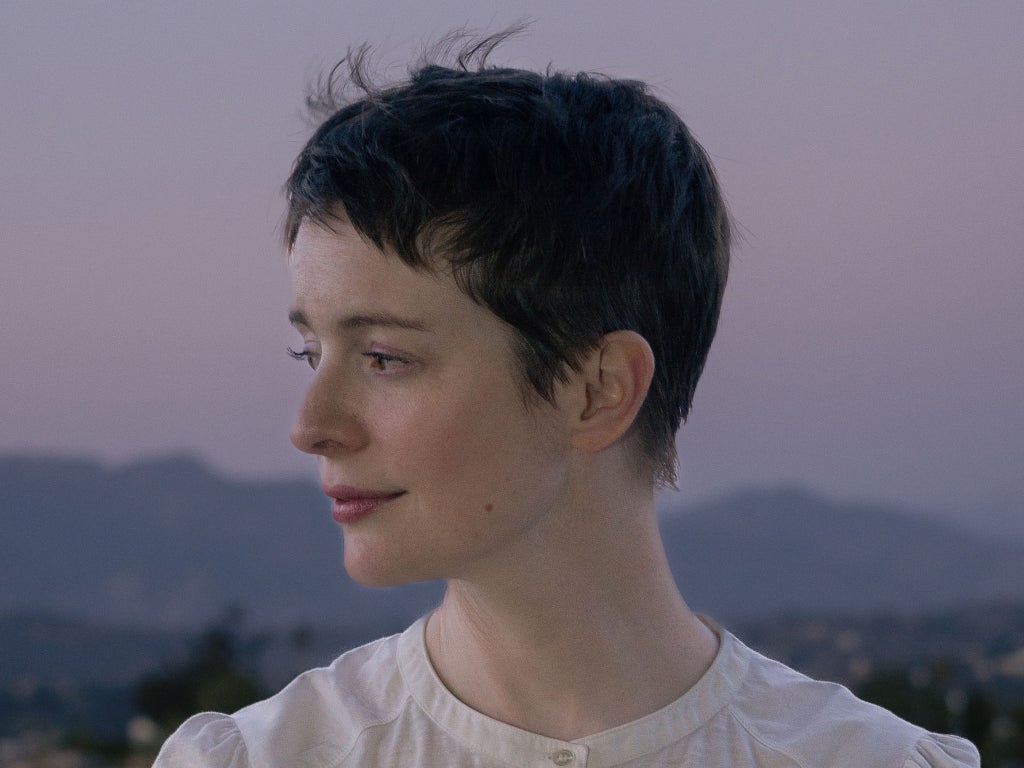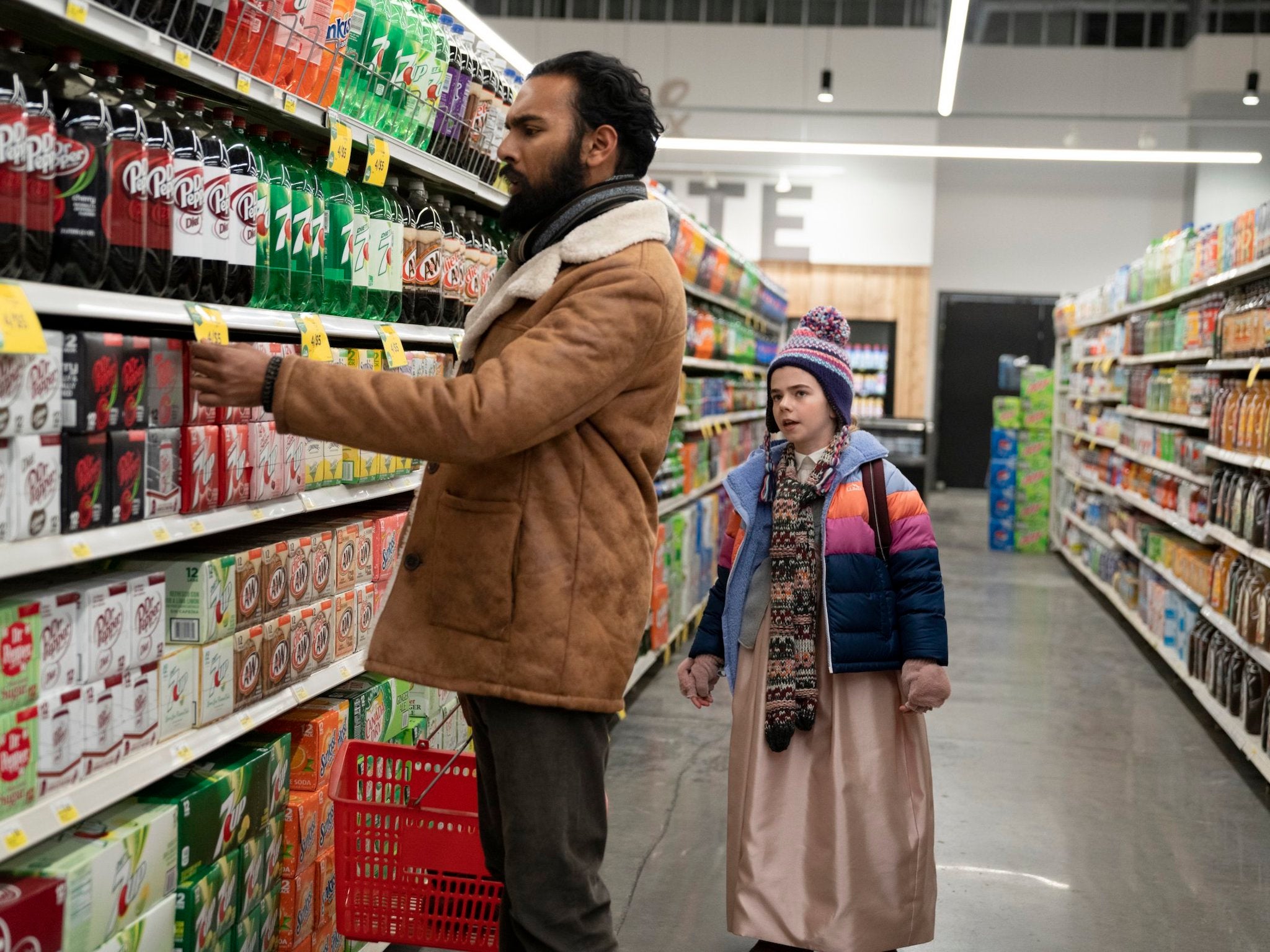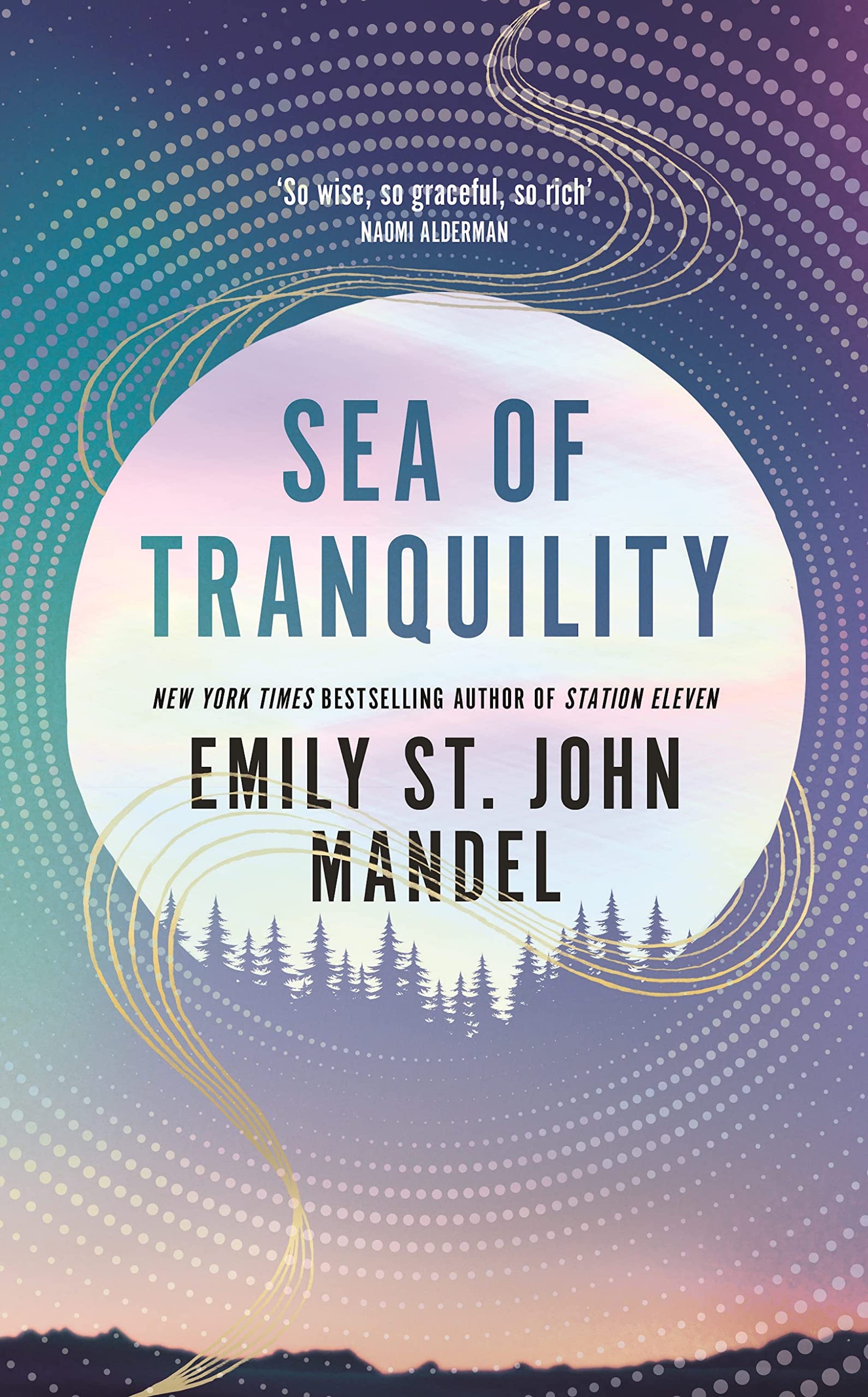
There is something comforting about Emily St John Mandel’s writing. Her stories of deadly pandemics and financial collapse offer warmth – like the heat coming off a forest fire. It was certainly true of Station Eleven. Mandel’s 2014 novel about a world-annihilating virus found unlikely popularity amid Covid-19. “We have this impossible desire to know how an unfolding disaster will end,” says the author over Zoom. Mandel, herself, downloaded the 2011 film Contagion. But she couldn’t bring herself to watch it.
Even before she was labelled a “prophet” of coronavirus (a label the author still bristles at), Station Eleven was a hit. The book sold more than one-and-a-half million copies and earned its writer the Arthur C Clarke Award for best science fiction novel of 2015. It was translated into 35 languages and adapted into a brilliant HBO series last year. It sent Mandel on an international book tour: seven countries in 14 months, some details of which she mined for her new book Sea of Tranquillity, a trippy sci-fi novel whose time-travelling plot hopping between 20th-century Canada and a colony on the moon defies any blurb. Mercifully, her next destination, Santa Fe, is a little closer to home.
“Sometimes the geography is very compelling with these invitations,” she says, smiling. Next month, Mandel will share the stage with authors including Colson Whitehead, Sandra Cisneros, Margaret Atwood, and George RR Martin at the inaugural Santa Fe literary festival. “The last time I was in Santa Fe, I met George in this beautiful old-school movie theatre he bought downtown,” she recalls. It was the day before the 2016 US election and Hilary Clinton was a sure thing. “It was a hopeful moment that I like to linger on,” Mandel says, half smiling at the memory, half grimacing at the knowledge of what came next.
People often ask Mandel how the real-life pandemic compares to her imagined one. It’s not the difference in fatalities or government strategies that come to mind, however, but an innocuous moment that arrives early on in her book. “The characters are watching a newscaster on TV tell them that a virus is ravaging the Earth, and the most incredible part is the people watching believe it,” she says. “That made sense when I wrote it 10 years ago, but try to imagine that scene today: what small percentage of people would believe what the newscaster was saying and what other percentage of people would think it was Russian propaganda, or some liberal big media hoax?” She goes on: “It’s no longer a matter of disagreeing on policy. It’s a matter of debating reality. That’s a profound loss and I don’t know how you come back as a country from that.”
It’s hard to pinpoint exactly when we lost our ability to agree on facts – although one could argue it happened shortly after Mandel’s meeting with George RR Martin: Donald Trump was announced as president in the following days. “I hate to say it because it makes me sound like a conspiracist,” she hesitates before forging on. “My understanding is that there were real concerted efforts to divide us as a nation and I think those efforts worked really well. That’s the uncomfortable truth. We’re living in this unknowability of truth, which I understand is something of a Russian intelligence export.”

Mandel shies away from the online celebrity that comes with being a bestselling author (“there’s something peaceful about privacy”) so the Mandel-like character in her new book is somewhat of a surprise. In Sea of Tranquillity, Olive Llewellyn travels the world on tour having found fame for writing a book about the aftermath of a fictional flu pandemic. Her tour is interrupted by a real pandemic. Olive relays her experiences: reporters question her over her sexual preferences. Others ask why she is not at home, taking care of her daughter instead. These are autobiographical details. “People really said those things to me on the road,” says Mandel. She isn’t alone. “It’s just that nobody talks about it – and there’s a good reason for that. It’s the same reason lottery winners don’t talk about the stresses of winning the lottery: it’s bad taste! Getting a book tour is an incredible privilege; it’s incredibly good fortune.”
Mandel was born in the spring of 1979 on Vancouver Island, the second of five siblings. Her parents are what she calls “back to the land hippies”. When she was a baby, her dad was racing to finish building their house in the woods before winter arrived. Meanwhile, they slept in a tent. The next few years were suitably rural. “I spent a lot of time building forts,” she recalls. Her parents home-schooled Mandel until she was 15; she was shy as a child, plus the local elementary school wasn’t great, she says.
Mandel spent a lot of time in her bedroom, the details of which she relays as richly as in her writing. “It was an attic room, so the ceiling was a triangle shape; seven feet at the peak that went down to about four feet around the edges, so you had to stoop a little bit,” says Mandel. “What that meant was I could reach the ceiling.” She sponge-painted it purple and blue, decorating it with planets and stars. On the white plaster walls, Mandel drew vines and flowers, between which photographs of ballerinas pirouetted.
Dancing was the initial plan. At 21, Mandel graduated from the School of Toronto Dance Theatre with staggering debt and the realisation she didn’t want to dance any more. “I was very unhappy in Montreal,” she says. “It was a question of, well what comes next?” Outside of ballet, Mandel had played the piano seriously and written regularly. She decided to pursue the latter. After four years of writing, she published her first book, Last Night in Montreal.
Mandel hadn’t expected much from her new career. She wrote around her nine-to-five job as an administrative assistant at a cancer research lab. Her first three books – all noir crime mysteries – were modestly successful. “I assumed I would keep publishing novels; they’d sell 3,000 copies and I’d earn a little extra money.” Then came Station Eleven. “It was this juggernaut that rolled over my life.” For one thing, Mandel was able to quit her day job. But it also brought expectations. “For the first time ever there was this invisible audience hovering over my shoulders.” Popularity brings weirdness, says Mandel. “The strangeness of what life can become following something like that.”
The pandemic contributed to that “weirdness”. Suddenly, everyone was itching to speak to the woman who appeared to have predicted disaster. “I found that really uncomfortable,” she says. “There were so many invitations to write op-eds and essays, but if I said yes to any of them, it would be like I was using this real-life human tragedy to move units of Station Eleven. This idea of tragedy as a marketing opportunity was so unpleasant to me.” Mandel eventually offered to speak to a few outlets about her new book The Glass Hotel. Obviously, the pandemic came up. “It made sense to me that everybody wanted to talk about the pandemic; that’s what I wanted to talk about, too. And this was a way of doing that without writing articles about ‘What it’s like to be Emily St John Mandel in the days of Covid-19’. Oh god…” she cringes at the thought.

The birth of her daughter changed things, too. Before her, imagining the end of the world was abstract. Afterwards, it felt real. On tour, it became difficult for Mandel to talk about the collapse of civilisation and the deaths of people without imagining her daughter being one of those people. Mandel knows Station Eleven would’ve been a different book had she been a mother when she wrote it. Maybe even a better book. “That’s what I admire about the TV adaptation,” she says. “The people who created it have kids and that’s a much harder thing to imagine.”
The critically acclaimed series from Patrick Somerville departs from the source material in significant ways. Jeevan, a footnote in Mandel’s novel, becomes a major character on screen, played by Himesh Patel. He takes a young girl, Kirsten, under his wing in the early days of the virus. They endeavour to survive together. “I think that’s better storytelling than what I did,” Mandel says of the drastic change.
I think [the HBO adaptation] is better storytelling than what I did
This willingness to question herself is characteristic of Mandel’s writing. She is interested in contingency, who you might be in a different situation – or a different dimension where, say, 99 per cent of the world’s population is wiped out by a flu. Or you grew up on a moon colony in the 24th century. “I am very open to the possibility that a story I’ve told could have been told in a more interesting way,” she says. It makes sense then that certain characters recur across her novels as different iterations in different situations. Infinite angles on the same character. A Mandel multiverse, if you like.
Recently, she glimpsed the concept playing out in her own life. Mandel’s daughter was four when the pandemic hit. “Six months into lockdown, she said to me, ‘Mama, was there a world before quarantine?’ My immediate reaction was heartbreak but later I realised that while I was mourning the lost paradise of 2019, my daughter had no recollection of it. For her, there was very little ‘before’ to remember, let alone grieve.” In a way, Mandel’s daughter occupies a different world to her own. She thinks of her latest book in a similar way: a product of its own universe. “I think we were all a little deranged in 2020, and I don’t think I could’ve written it in a less strange time.” She takes on a jokey salesman-type voice, “Sea of Tranquillity… brought to you by Covid-19!”
The Independent, as the event’s international media partner, will be providing coverage across each day of the festival as well as during the lead up with exclusive interviews with some of the headline authors. For more on the festival visit our Santa Fe Literary Festival section or visit the festival’s website. To find out more about buying tickets click here.







